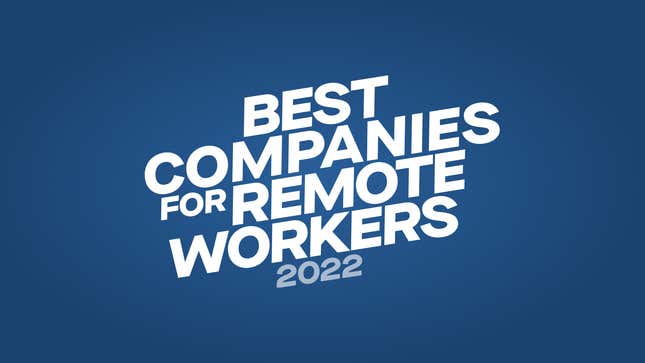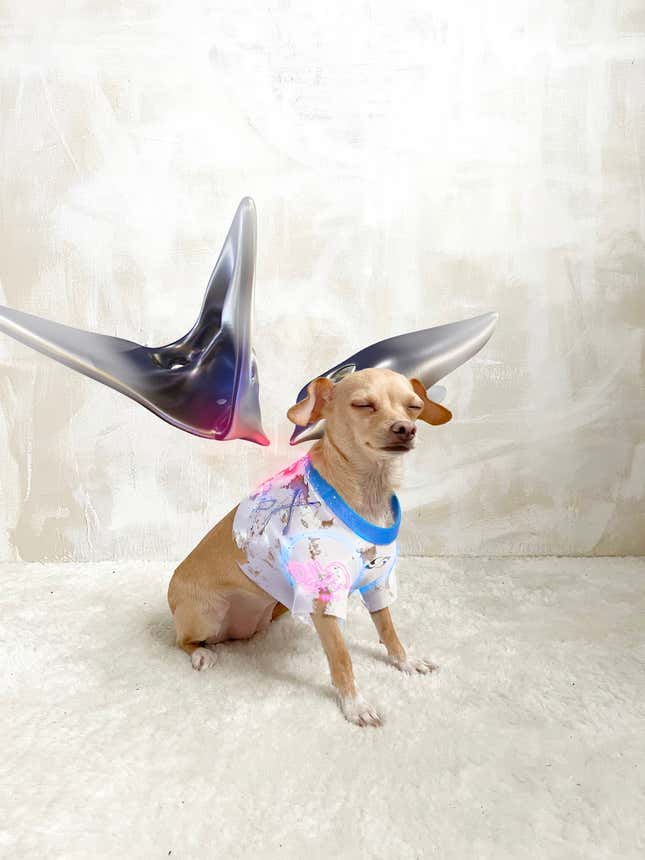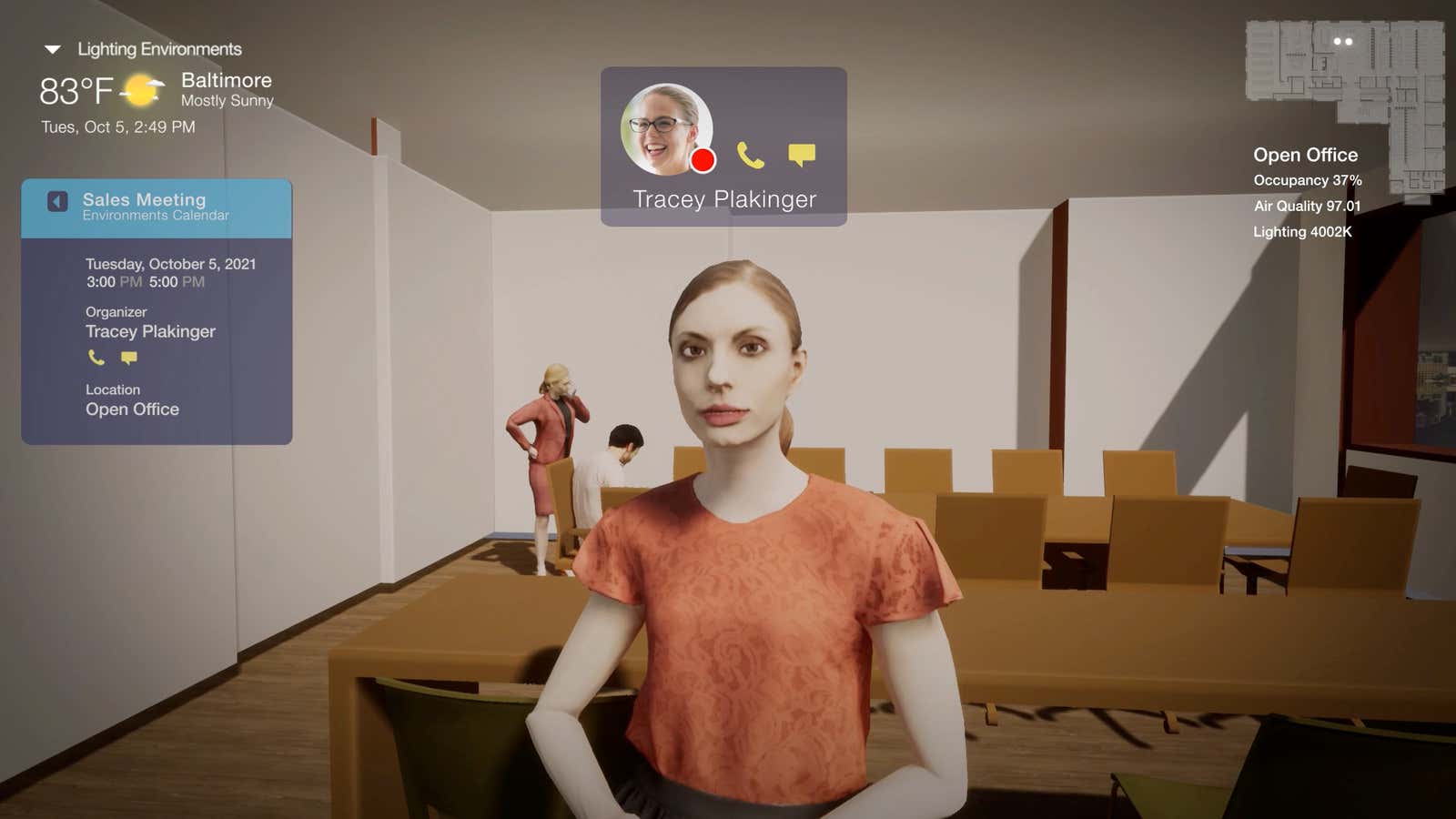About 10 minutes into my interview with Shep Ogden, the 26-year-old co-founder and CEO of a digital media startup that counts Mark Cuban among its investors, I began to panic.
Ogden was showing me around his company’s sleek employee clubhouse in the metaverse, but it was hard to focus. I was sure I was going to vomit.
“Shep, I’m sorry,” I finally said, “I’m not sure I can do this.”
I was nauseated, but Ogden was gracious enough not to laugh. He said my problem was not uncommon for newcomers to VRChat, the virtual platform where Offbeat Media Group built its bespoke private campus.
The real Offbeat Media—maker of virtual influencers and streaming shows—is based in Atlanta, where it has a small physical workspace. Ogden was speaking to me from his office there, I was at home in New York, and we were both wearing VR goggles.
With Ogden’s guidance, I adjusted the way my avatar walked so it no longer made me dizzy. Now my avatar glided, allowing me glimpses of its form. I was a raccoon, I discovered, shortly before sliding—by accident, I might add—into the company’s pool. As I sank, virtual water slowly filled my field of vision.
The so-called metaverse—from where I conducted this interview—is not a single place and its definition is debatable, but enthusiasts are already talking about how it will one day exist as a kind of decentralized internet, where we can live, shop, and socialize in digital public or private VR spaces. And work.
Already brands and companies have begun buying real estate in VR.

Is the future of work in the metaverse?
Not so fast.
What the metaverse can do for the average in-person workplace remains an open question.
But early research and experimentation suggest the uses of the workplace metaverse might fall roughly into three functional categories:
- An alternate office space. VR meeting apps allow people to write on whiteboards, or in the air, and to watch video feeds, which might include a Zoom call. Meta’s Workrooms app also has a Passthrough window, which allows users to see into their physical space without removing their headset, so you can work on your actual keyboard. Still, there’s not a whole lot to do in virtual workspaces beyond watching a presentation, running a Post-it note brainstorming meeting, or just talking.
- A place for immersive training. The world’s big consulting companies are developing content for VR training, putting new hires behind virtual airline counters or in a restaurant kitchen, for example. “If you’re really going to learn, it has to be applied learning—learning by doing something,” says Suneet Dua, products and technology chief growth officer at PwC, “and with the metaverse you get to do applied learning at the next level. It’s like learning on steroids.”
- An employee hangout. Offbeat’s digital campus has become an ideal place for employees to celebrate birthday parties or just hang out. Congregating in the metaverse is “10 times better” than gatherings on video calls, Ogden says, because it really does feel like you’re with other people while you’re physically apart.—Lila MacLellan, senior reporter
Read more about how companies are dabbling in the metaverse. Write to us at [email protected].
We want to hear from you
Will you be saying “meet me in the metaverse” anytime soon?
Five things we learned this week
😨 Hospitals are bracing for a global shortage of 13 million nurses by 2030. Moral distress is among several factors driving nurses to consider dropping out.
🆘 Thousands of foreign medical students are stranded in Ukraine. With the threat of war looming, Indian students seeking to leave the country are finding that airfare prices have become very prohibitive.
⚡ Here’s a nifty Google doc shortcut. Typing “doc.new” directly on Google Chrome’s address bar will magically open a new document—one of several productivity hacks from our tech reporter.
⁉️ The “great resignation” may be a fairy tale. The oft-used phrase to characterize today’s global economy is largely based on one US-based data point.
💸 The Indian wedding industrial complex is worth $50 billion. Families spend, on average, 7.5 to 10% of their net worth for a lavish nuptial party, as discussed in the latest episode of the Quartz Obsession podcast.
Watch this space
Is your company already holding power meetings in the metaverse? Is it a haven for remote and hybrid workers? It’s not too late to submit your company to Quartz’s Best Companies for Remote Workers, a new global ranking on Quartz at Work coming later this year.

It’s a fact!
An office-dog inspired a fashion collection: Pepa, designer Gala Marija Vrbanic’s pup, was the muse for her fashion house’s showcase for Crypto Fashion Week.

You got The Memo!
Today’s Memo was written by Lila MacLellan and Anne Quito, and edited by Francesca Donner. The Quartz at Work team can be reached at [email protected].
Did someone forward you this email? Sign up for future installments here. Get the most out of Quartz by downloading our app and becoming a member.
